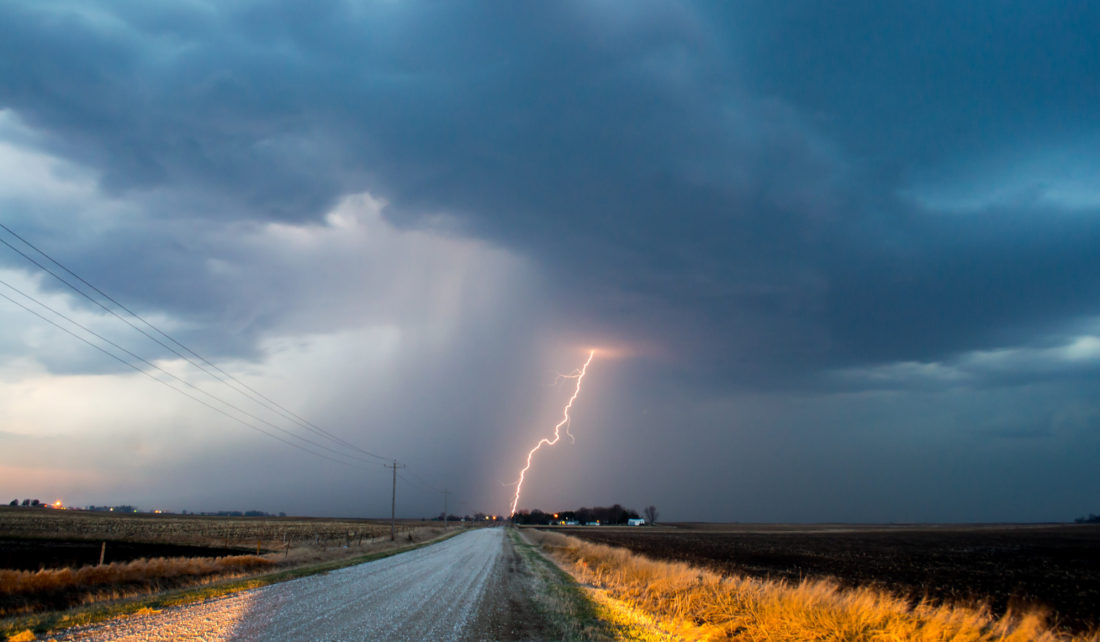
In small-town Indiana, a conversation with local decision makers about how they are responding to climate change may depend on defining the risks. While the concept of climate risks may be not be considered relevant by some local officials, flooding problems, for example, most definitely are.
William Bianco, a political scientist at Indiana University, discovered this and much more about community attitudes and actions related to climate change through his Illinois-Indiana Sea Grant Scholar project.
Through Indiana University’s Environmental Resilience Institute (ERI), Bianco’s team of six students interviewed local officials in the summer of 2020 using the institute’s Hoosier Resilience Index, which is designed to help communities understand the importance of taking action to contend with climate change.
“We were trying to get a sense of the facts on the ground—to understand why some communities see climate risks differently than others and are making different choices,” said Bianco.
They found that when it comes to preparing for the impacts of climate change, regardless of what side of the political fence they land, local decision makers in Indiana want to be good stewards of their communities. Some may be skeptical about climate risks, but they want their communities to be resilient.
“When we talk about communities not being ready for climate change, it’s really a definitional question,” said Bianco. “We have to ask the question differently— are they aware that stormwater patterns are changing, rather than, are they accommodating climate threats.”
These conversations with local leaders also revealed that whether a community in Indiana is preparing for the impacts of climate change depends on access to resources.
“Insofar as we’re asking local communities, by default, to carry the burden of accommodating climate risks—one of the big problems we face is that not all communities are created equal,” said Bianco. “A lack of intention is not driven by ideology—it’s simply they don’t have the capacity to take action.”
There are some doable steps that communities can take to be better prepared. The student researchers pulled together a list of these options and shared them with local leaders, both to learn what they are already doing and to raise awareness as needed. The options include enrolling in the federal flood insurance community rating system, developing invasive species management areas, and forming formal structures for disaster management—a COAD, or Community Organizations Active in Disaster.
Setting up a COAD helps local leaders connect with emergency services and provides a path to develop a protocol for how to respond in a disaster.
Through the Environmental Resilience Institute’s engagement with local leaders, communities are talking to each other about responding to climate risks at conferences and other avenues. The ERI is publicizing success stories by having local officials talk about what they are doing—they are sharing their plans and activities with their counterparts in other communities.
“We learned that what communities are doing is a function of the actual risks they face, which is hopeful,” said Bianco. They may not call it ‘preparing for climate change,’ but they are nonetheless aware. There are untapped opportunities for informing local leaders and in making policy changes, not through persuasion, but by simply providing them tools.”
Bianco is one of nine faculty and seven graduate students who are or have been Illinois-Indiana Sea Grant scholars. The program helps develop a community of scientists to research critical issues related to Lake Michigan and the Great Lakes region through funding and other opportunities for one year.

